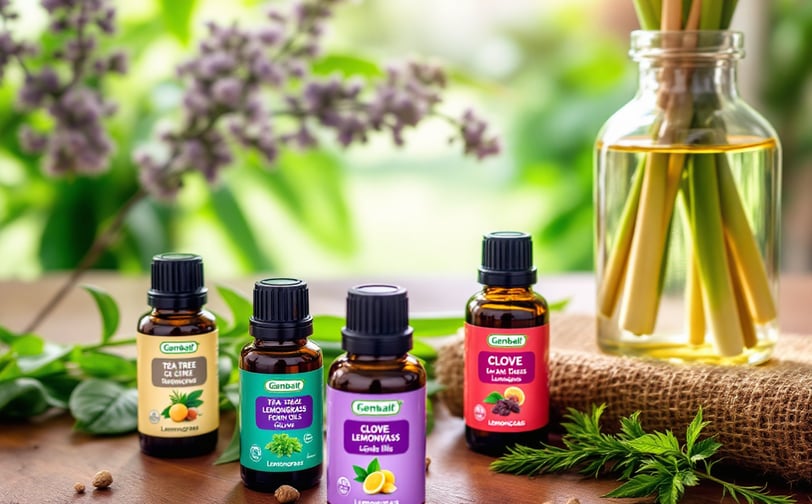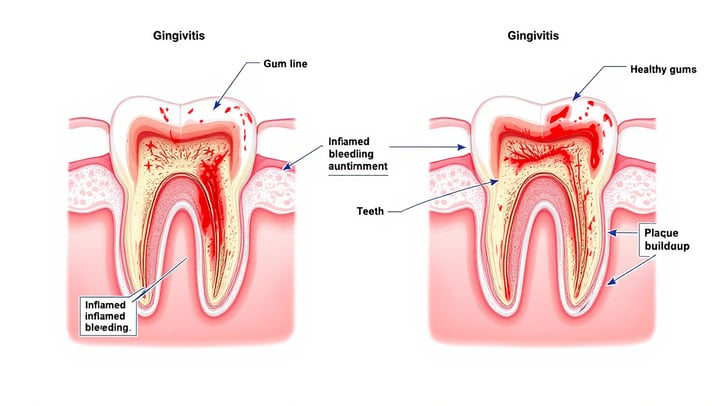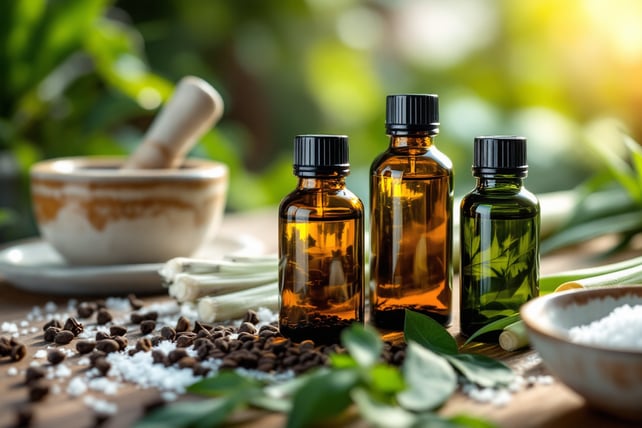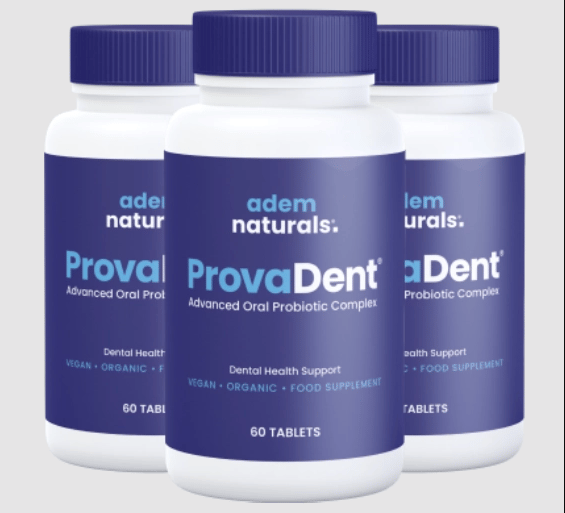Natural Remedies for Gingivitis You Need to Try
Discover effective natural remedies for gingivitis, including herbal oils like clove, tea tree, and lemongrass. Learn how to manage symptoms, support gum health, and prevent gum disease with simple, evidence-based treatments. Take control of your oral health today!
GINGIVITIS
Dr. Emma Hughes is a seasoned dental health expert with over 15 years
3/26/202515 min read


Key Takeaways
Gingivitis is an early, reversible gum disease caused by plaque buildup that leads to inflamed, bleeding gums.
Natural remedies—ranging from herbal oils and pastes to oil pulling and dietary practices—can help support gum health when used with regular oral care.
Consistent brushing, flossing, and routine dental visits remain crucial.
Experienced insights and practical Q&A help clarify the best natural strategies for managing gingivitis.
What is Gingivitis and Why Does It Matter?
Do u ever wonder what exactly causes those sore, red gums that sometimes make you frown while brushing? Gingivitis is a form of gum disease that starts when a sticky film of bacteria—called plaque—builds up on your teeth. Why does it matter? Well, if left unchecked, the irritation can worsen and cause bleeding, swelling, and even pain in your gums, which can eventually lead to more serious conditions. Don’t u think it’s pretty important to keep an eye on these signs, even if they seem minor?
Sometimes u wonder: how come so many folks don’t care until pain kicks in? Research shows that over 75% of adults experience some form of gum disease, and that’s a statistic worth taking seriously. What are the symptoms? You might notice red and swollen gums that bleed easily during brushing or flossing, accompanied by a not-so-fresh breath. This condition can progress to periodontitis if ignored, jeopardising your overall health – even linking to cardiovascular issues. Isn’t it crazy that something as simple as missing a brushing here or there can lead to such complications?
People often ask, “Is gingivitis reversible?” Yes, it is, if caught early and managed with proper care. Basic tips to keep those gums healthy include regular brushing with a soft bristle brush, daily flossing, and regular dentist check-ups. Have u ever thought about how natural remedies can work alongside these practices to support gum recovery? For more detailed info on preventing such issues, u can check out Natural Healthy Teeth.
A lot of folks also wonder, “But what causes plaque to stick around?” The answer is simple: inadequate oral hygiene, a sugar-heavy diet, or even underlying health issues can all play a part. Can u believe that even a few missed dental appointments can add up? Such questions show us that understanding gingivitis isn’t rocket science, but it does require consistent care.


Many people don’t realise that simple changes in daily habits can make a huge difference. Do u think a little extra effort sometimes could prevent big problems later? The answer is a resounding yes. This section shows that gingivitis is not something to ignore, and questions like “What are the early signs?” or “How can i stop it from worsening?” are best answered through diligent oral care and awareness. In short, understanding gingivitis is the first step toward regaining full control of your gum health—even if u sometimes forget to floss!
Herbal Oil Remedies for Gingivitis Relief: Clove, Tea Tree, and Lemongrass
Ever find yourself asking, “What neat natural solution can help ease my gum problems?” Well, herbal oils like clove, tea tree, and lemongrass come to mind. Clove oil, which contains eugenol, is used by many because it has antiseptic and anti-inflammatory powers. But how exactly do u use it? A few drops mixed with a carrier oil like coconut oil are swished in the mouth for a few minutes to help soothe swollen, bleeding gums. Isn’t it strange how such a tiny drop packs a punch?
And what about tea tree oil? U might wonder if it’s safe or effective. Tea tree oil is known for its natural antiseptic properties. It fights off the bacteria that cause gingivitis when diluted properly—usually, a couple drops in warm water make an effective mouthwash. But u might ask, “Can i use it directly?” No, direct application can be too harsh and might injure sensitive gum tissue, so dilution is key, always mix before use.
Lemongrass oil is another option. It works as a natural antiseptic and an astringent, reducing inflammation while helping to firm up the gums. How does that work? Just add a few drops to water, and that simple rinse can help fight bacterial build-up. Do u wonder if there’s a difference between these oils? Each has unique benefits: clove oil offers pain relief too, tea tree oil is awesome for its broad antibacterial properties, and lemongrass oil provides a triple-action result.
Sometimes it's good to ask, “Which one should i choose?” The answer is that combining these oils in your routine might be best. For instance, using clove oil a couple of days a week and alternating with tea tree or lemongrass can ensure that u cover different bacterial strains. U might also ask, “What about the safety aspects?” Always perform a patch test before using any essential oil too liberally, as even natural products can sometimes cause irritation if u overdo it.
Think about this: u can add these oils to your regular oral care routine without any extra fuss. They work well when combined with proper brushing and flossing. Have u noticed sometimes that small changes yield noticeable difference? If u want to know more ways to care for your teeth, try browsing Dental Health Products for products that incorporate natural ingredients.


In short, a few questions like “Why use herbal oils?” or “What benefits do they bring?” can be answered with their strong properties against gum inflammation and bacteria. It may sound odd at first, but u might find that these simple oils can give u a natural boost in fighting gingivitis even if u sometimes forget details about dilutions or timings. Remember, a little oil goes a long way if u are consistent.
The Treatment and Prevention of Gingivitis
ProvaDent offers several benefits that can contribute to the treatment and prevention of gingivitis.


Promotes Gum Health
The supplement supports gum health by reducing inflammation, promoting healing, and preventing gum disease. Its blend of probiotics, vitamins, and natural ingredients strengthens gum tissue and fights harmful bacteria, maintaining a healthy oral microbiome.
Fights Harmful Bacteria
ProvaDent includes antibacterial agents such as cranberry extract, which helps prevent plaque buildup and combat harmful bacteria in the mouth. This is essential for preventing gingivitis, as plaque is a primary cause of the condition.
Reduces Gum Inflammation
ProvaDent contains ingredients like purple carrot powder, which is rich in antioxidants and helps reduce gum inflammation. This is crucial for treating gingivitis, as it directly addresses the inflammation that characterizes the condition.
Herbal Pastes and Rinses for Gum Health: Turmeric, Aloe Vera, and Salt Water
Ever asked, “Could mixing some simple kitchen ingredients help my gums?” Well, herbal pastes and rinses offer a really accessible route to relief. Turmeric paste is one of those remedies. Do u know that turmeric contains curcumin, an antioxidant with anti-inflammatory benefits? Many folks mix one teaspoon of turmeric powder with a bit of water (or even a pinch of salt) to form a paste that is gently applied to the gums. Why turmeric? It actively helps reduce swelling and can even promote healing over time. But u might be curious, “How long should i leave the paste on?” About 10 minutes is often enough before rinsing thoroughly.
Aloe vera is another natural remedy many ask about. Isn’t it interesting how a plant known mostly for sunburn relief also works wonders for gums? Pure aloe vera juice, used as a mouthwash, soothes irritated tissues while killing bacteria gently. Don’t u sometimes wonder why nature provides such multipurpose benefits? U can swish aloe vera juice for about 30 seconds, spit, and repeat a few times a day. Even applying aloe gel directly to inflamed areas can offer localized relief.
And then there’s the classic salt water rinse. It might sound too simple, but its benefits are backed by centuries of use. Dissolve around 3/4 teaspoon of salt in a warm glass of water, and u have a mild antiseptic rinse. Do u ask yourself, “Isn’t salt harsh on the mouth?” Funny enough, salt water actually helps draw out excess fluids from inflamed tissues, reducing swelling and discomfort. It's like hitting a reset button for your gums.
Sometimes u might wonder if mixing these remedies is safe. The answer is that each remedy can be used independently on different days, or even sequentially in a routine, as long as u listen to your body. A little table to summarise:
U might ask, “Why not use these remedies all at once?” It’s best to let each work on its own, so your gum tissues can adjust without being overwhelmed. It might sound a bit odd, but alternation can be key.
For more advice on natural oral care methods, consider visiting Natural Healthy Teeth to see more tips. This mix of turmeric, aloe, and salt water demonstrates that everyday ingredients can sometimes be the simplest yet most effective ways to keep your gums healthy. Even if u sometimes feel sceptical, the science behind these remedies backs up their use.
Oil Pulling Therapy: Using Coconut Oil for Gum Health
Have u ever heard of oil pulling? It’s an ancient practice that might sound a bit unusual in our modern routine, but trust me, it’s effective. Oil pulling with coconut oil is one of those remedies that u might think is too old-school, but many see real benefits from it. The idea is simple: swish a tablespoon of coconut oil in your mouth for around 15 minutes. Why 15 minutes? The oil’s antimicrobial properties—thanks in part to the lauric acid—help reduce bacteria linked to gingivitis, slowly pulling the toxins away from the gumline. Does that not sound almost mystic, yet real?
You might ask, “Can i swallow the oil?” Absolutely not—the oil should always be spat out after it turns slightly milky. One can get a bit confused by the process at first, but give it a try and let your mouth adjust. It might feel strange, but the results can be surprising. Oil pulling also helps break down plaque, which is the main culprit for gingivitis, and many users report fresher breath afterward. Do u wonder if any oil works? While there are several options, coconut oil is favoured because it’s readily available and has a gentle taste.
Interestingly, oil pulling doesn’t need to be done every day. Some prefer starting with a few times a week and then increasing the frequency once they observe improvements. Isn’t it a bit like testing the waters before diving in completely? Even though the concept might seem a bit quirky or old-fashioned, traditional practices often hold hidden wisdom from the past. If u ask, “What if i miss a day?” no worries—consistency over the long term matters more than perfection.
Some users like to combine oil pulling with their morning routine and then brush their teeth afterward. This routine ensures that the bacteria are properly removed. Additionally, u might ask, “How do i know if it’s working?” Look out for signs like reduced gum redness, less bleeding, and a cleaner feeling mouth. Keep a mental note of any improvements and share them with your dentist at check-ups.
While oil pulling is not a replacement for brushing or professional dental care, it does complement them nicely. Do u sometimes see benefits from mixing natural remedies with routine care? The answer is yes—a balanced approach usually wins. Just remember to be gentle and patient with the process. A little regularity in oil pulling can help calm the gum tissues and reduce inflammation naturally.


Other Natural Remedies: Green Tea, Calendula, and Baking Soda
Isn’t it interesting how nature offers a spectrum of remedies for gum issues? Green tea, calendula, and baking soda are additional ways you can tackle gingivitis naturally. Have u ever sipped green tea and thought, “Maybe this can help my gums too?” Green tea is packed with catechins, natural antioxidants that help reduce inflammation and fight bacteria. Drinking a cup daily or using cooled green tea as a rinse can contribute to overall gum health. Don’t u sometimes marvel at how a simple beverage can offer health perks beyond refreshment?
Calendula, also known as marigold, is another natural remedy known for its anti-inflammatory and antimicrobial properties. U might ask, “How is calendula used in oral care?” Often, calendula extracts are added to mouthwashes or dentifrices. Research indicates that calendula improves key markers of gum health. Even though it may sound fancy, it’s a plant extract that simply supports healing and cleans up bacterial colonies. If u’re curious about different natural extracts, calendula stands out as one of the gentlest yet effective solutions.
Then, there’s baking soda. It’s well-known for its role in neutralising acids in the mouth, which helps maintain a balanced pH level that reduces harmful bacteria growth. How do u use it? You can mix a tiny amount with water to form a paste and use it as a mild abrasive when brushing, or even as a rinse. Isn’t it odd that something so common in your kitchen can also protect your teeth?
Think about these questions: “Which remedy suits my routine best?” or “Can i mix these into one daily routine?” The answer is that mixing different remedies might boost overall efficiency without overdoing one single method. Here’s a simple breakdown:
Green Tea: Drink or swish as a rinse.
Calendula: Use products that contain calendula extracts.
Baking Soda: Use as a toothpaste alternative or rinse occasionally.
For more comprehensive tips on caring for your teeth and gums, you may want to visit Dental Health Products. It’s not magic, but a careful combination of natural ingredients can help keep gingivitis in check. Sometimes u may feel that these natural options sound too simple or even generic, but remember, many traditional practices have stood the test of time. And even if u might slip up now and then with your routine, the key is consistency and being mindful of your gum health.
Preventing Gingivitis: Daily Oral Hygiene and Nutritional Practices
Ever wonder what little everyday habits can make a big difference in your gum health? Preventing gingivitis isn’t just about treating it when it shows up; it’s about keeping your mouth clean and healthy every day. Brushing twice daily with a soft-bristled toothbrush, flossing well, and using a natural mouthwash have a massive impact. Do u sometimes skip flossing ‘cause it feels like a chore? Even if it does, skipping it might let plaque build up and cause issues down the road.
In addition to brushing and flossing, a balanced diet is key. Foods rich in vitamin C, antioxidants, and low sugar content help your body fight off bacteria and reduce inflammation. Ever asked, “Why is sugar so bad for my gums?” Sugar feeds bacteria, which then thrive and produce acids that harm the gum tissues. It might be a simple concept, but it’s one worth remembering every time u grab a snack.
Daily habits matter a lot, and sometimes u might not realise that small changes can save u from big dental bills later on. Do u know that regularly visiting your dentist, even when everything seems fine, is part of prevention? Professional cleanings remove tartar that your toothbrush can’t tackle. For more insight into how to avoid issues like tooth decay, check out Tooth Decay.
Certain foods, like leafy greens, nuts, and citrus fruits, naturally support oral health. Would u believe that crunchy vegetables can help clean your teeth? They do, by mechanically scrubbing away plaque while also strengthening your gums. It’s all about integrating these healthy habits into your daily routine.
A table might also help summarise some key preventive tips:
Do u sometimes feel overwhelmed by all the do’s and don’ts? It might seem like a lot, but take small steps and keep it simple. Even small progress, done consistently, goes a long way toward preventing gingivitis. Remember, these basic practices not only guard against gum problems but also contribute to your overall health. U might even find that setting reminders on your phone for brushing or flossing helps keep you on track.
When to Seek Professional Help: Recognizing Serious Gum Issues
Have u ever been unsure whether your sore gums need a dentist’s attention? It’s not always easy to tell when natural remedies and daily care aren’t enough. Gingivitis starts off mild, but if left untreated it can lead to periodontitis—a condition that can eventually damage the bone supporting your teeth. Do u know the warning signs? Persistent bleeding, aching gums, receding gum lines, or even loose teeth are all signals that professional care is needed.
You might ask, “When should i definitely get a dentist involved?” If u’ve been using natural methods consistently and notice no improvement after a few weeks, it’s time to see a professional. Even if u feel that the pain is minimal, underlying problems could be silently progressing. Sometimes, the signs are subtle, like a slight change in your breath or gum texture. Isn’t it better to be safe than sorry?
A dentist can offer treatments like scaling and root planing, which are procedures specifically designed to remove tartar and bacteria from stubborn areas under the gum line. These treatments, combined with proper at-home care, can halt the progression of gum disease. Do u ever wonder if professional help might cost too much? While cost might be a concern, ignoring serious symptoms can lead to far greater expenses and health issues down the road.
Moreover, professional practitioners can advise u on how to safely use natural remedies in conjunction with clinical treatments. They may recommend certain products or changes to your routine that u haven’t considered. If u feel uncertain, speak openly with your dentist about your use of natural remedies. Discussion can ease worries and help confirm that u’re on the right track.
It might sound repetitive, but really, the question is: “Am i taking my oral health seriously enough?” If u have doubts, schedule an appointment; sometimes a professional consultation can provide both reassurance and a clear path forward. Not every remedy works for every person, and a dentist can help tailor solutions to your specific needs. Taking these steps not only protects your teeth but also contributes to long-term overall wellness.


Expert Experiences and Final Insights on Natural Remedies for Gingivitis
Ever wonder what experts really think about natural remedies for gum health? I sometimes find myself scratching my head, asking, “What’s the best way to blend natural care with modern practices?” In my years of dealing with patients and personal experiences, I’ve seen that natural methods are both intriguing and helpful when used consistently. Though they might seem a bit unconventional, remedies like herbal oils, pastes, and even oil pulling have accumulated a wealth of anecdotal support from everyday folks.
What makes natural remedies appealing? For one, they’re accessible and often involve ingredients that u already have in your kitchen or garden. For instance, using turmeric paste or ginger in your routine is as simple as mixing a spoonful with water—though, admittedly, sometimes u might mess up the measurements, but that’s totally normal. Experts often mention that consistency is more important than perfect precision. Isn’t it fascinating how our everyday habits can lead to significant benefits?
I often get asked, “Are natural remedies really enough?” The honest answer is that they can play a key role, but they aren’t a substitute for professional dental care. They work best when combined with regular brushing, flossing, and dental check-ups. A regular routine helps keep the bacteria in check, which is the foundation of preventing gingivitis. Yet, if symptoms persist, it’s wise to seek advice from a dentist. Have u ever experienced that moment of doubt when a remedy that worked before suddenly doesn’t? It happens to many, and the solution lies in adjusting your routine or consulting a professional.
Personal experience tells me that small changes—like adding a quick oil pulling session or a daily aloe vera rinse—can make a real difference over time. I recall a time when I was uncertain about whether to trust these methods, but careful, consistent practice soon yielded noticeable improvements. U might ask, “What if i slip up one day?” Well, don’t fret too much. Real progress is about the overall trend of care, not perfection every single day.
Experts agree that knowledge paired with consistent action is the secret. Questions such as “Should i try clove oil or tea tree oil first?” or “Is turmeric really that potent?” are common and valid. It’s okay to experiment carefully, keeping track of what works best for u. And remember, every person’s mouth is different. What helps one might not work as well for another, and that’s why personalized care matters so much.
In conclusion, natural remedies provide a valuable supplement to traditional dental hygiene practices. They encourage u to get creative while caring for your gums, and every question u ask—from which herb to use to how often to perform oil pulling—brings u closer to a healthier mouth. Always stay curious, be patient with the process, and adjust your routine as needed. There’s no single perfect remedy, only a blend of consistent care and smart choices that, when combined, can help keep gingivitis at bay.
Conclusion
Frequently asked questions
How long does it typically take for natural remedies to show improvements in gingivitis?
Most remedies start showing benefits after about 2–3 weeks of consistent use, though individual results may vary.
Can i combine different natural remedies such as herbal oils, pastes, and oil pulling in one routine?
Yes, mixing remedies can be effective—as long as u follow proper dilution and usage guidelines to avoid irritation.
Are there any risks of using these natural methods if i have sensitive gums?
Mild irritation can occur, so it’s important to perform patch tests and consult your dentist if u experience persistent discomfort.
Is oil pulling safe to do daily?
Oil pulling is generally safe when done for 15–20 minutes, but u can start with a few times a week and increase frequency based on tolerance.
What should i do if natural remedies do not improve my symptoms?
If improvements aren’t noticeable or symptoms worsen, it’s important to seek professional dental care promptly for further evaluation.
Can i use tea tree oil directly on my gums?
No, tea tree oil should be diluted with water or a carrier oil to prevent potential irritation or chemical burns.
How important is diet in preventing or managing gingivitis?
A balanced diet low in sugars and rich in vitamins, especially vitamin C, plays a critical role in maintaining gum health and preventing gingivitis.
Dental
Explore tips for maintaining healthy teeth and gums.
Care
Advice
+07585653512
© 2024. All rights reserved.






